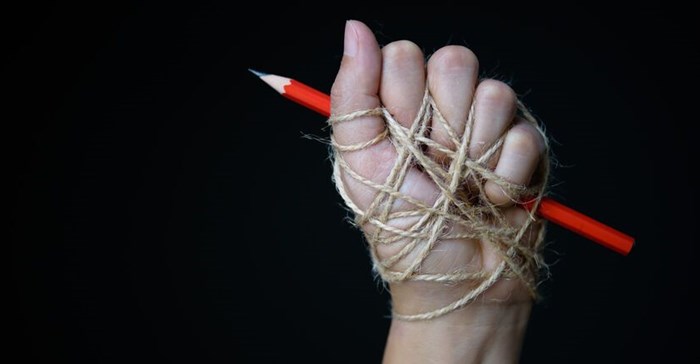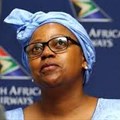Journalists are facing attacks on all fronts; from fake news and deliberate online and digital campaigns that undermine journalism to physically being assaulted when they are out covering stories.

Source: © Siam Pukkato
123rfThis is but one issue impacting the media that was recently discussed by a panel presented by the South African National Editors’ Forum (Sanef) on World Press Freedom Day.
“In South Africa, the media has been positioned as the enemy of the people and transformation; a narrative that has led to a trust deficient from communities,” says Nwabisa Makunga, Sanef treasurer-general and Sowetan editor.
Enemy of the people
Operation Dudula is an example of this. Reporting on the activities of this organisation led communities to believe the media is on the side of foreign nationals leading to attacks on journalists.
“But journalists are doing their job – reflecting the truth. We must not jump on the bandwagon. 1994 is still fresh in our memory and how media can hype up a situation. Regardless of attacks on journalists, we need to record our role as correctly as we can,” says Makunga.
She adds that the current narrative on the media has also meant that newsrooms are frustrated by a lack of access to facts.
“The cornerstone of freedom of the media is to access credible facts to tell stories. Yet access to the courts depends on the whims of the court presiding officers so the flow of information ensured by the Constitution is being curtailed,” says Makunga.
She calls it a battle.
Time for introspection
To counter this current narrative, the panel all agreed that now is the time for introspection and action. This also means facing up to the media’s own mistakes.
“As with all freedoms, media freedom comes with responsibilities. When we advocate for media freedom, we have to ensure that we behave responsibly, practising ethical journalism all the time, subscribing to the basic fundamentals, such as the right of reply,” says Katy Katopodis, Sanef convenor for Gauteng and Newzroom Afrika news director.
“As a media fraternity, we hold a very fragile democracy in our hands and we have to be conscious of that,” she says, adding that the media holding itself accountable and building trust is what will make it stronger and better.
Makunga also says: “There is a need for introspection if we are to protect the integrity of journalism. We cannot betray the very thing we are here to protect. It is a tough job, but this is the time to do it.”
Understanding the role of the media
“We have had many conversations on protecting media freedom; it is not a new issue, but we are now at a point where we need to take practical steps to ensure we do not pay lip service to the sustainability of the media,” says Sibusiso Ngalwa, Sanef chairperson, Eyewitness News editor in chief.
Makhuda Sefara, Times Live editor, Sunday Times deputy editor and Sanef acting media freedom chairperson says it must be acknowledged that there are those who do not want an independent probing investigative media and do not want to help our democracy to grow.
"Many also people do not understand what the role of the media is. To change this means not so much us speaking at the top of our voices, but instead it needs to be a partnership between ourselves and communities,” says Sefara.
“That conversation should be about what the media has done to help society to show that the actions we take are not for our benefit, but for the benefit of the broader society,” he says.
Sefara called on everyone attending the forum to educate society on the media, with an emphasis that media freedom is not only for the media; it is a freedom for the good of everyone.
“The freedom of the press is, in fact, freedom for all people of the world,” he says.













































